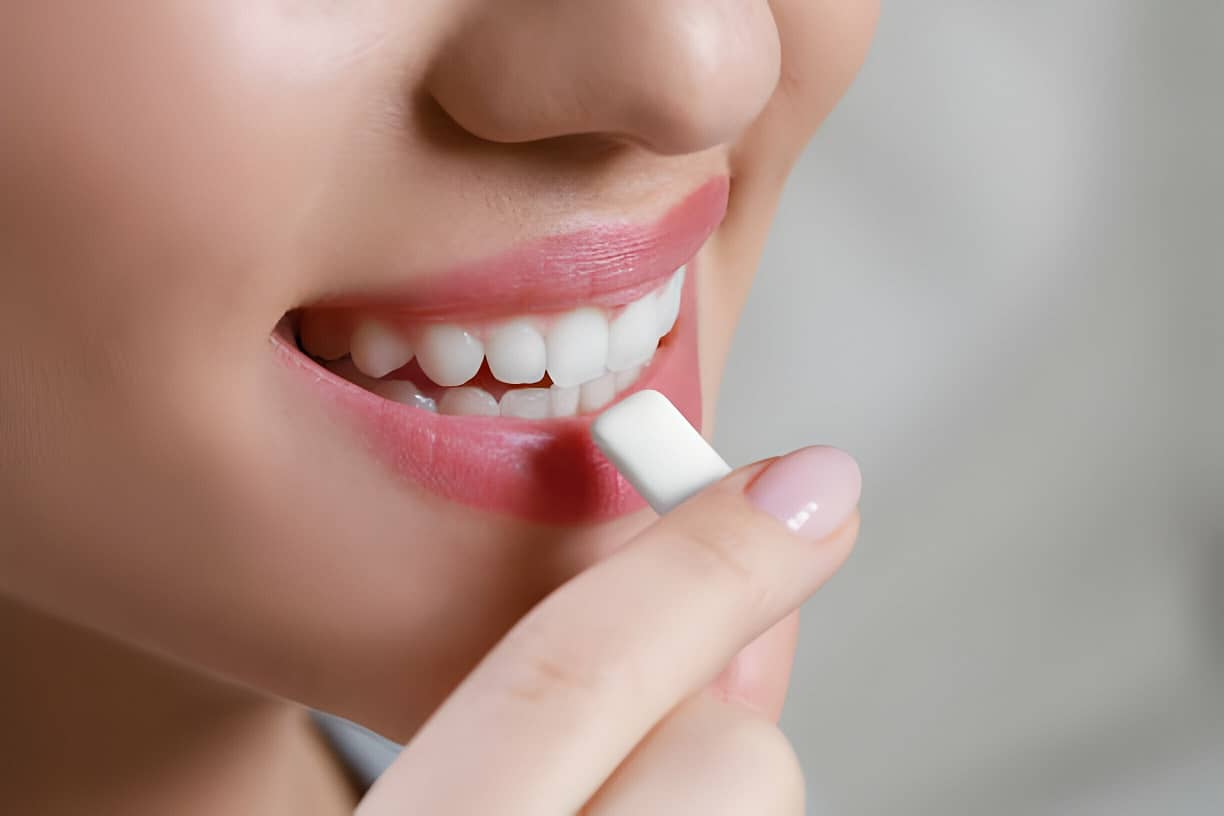You might be wondering why your dentist advised you to chew gum. Is that beneficial for your teeth? Isn’t it bad for our teeth? Let me explain why your dentist recommended this.
Brushing, flossing, rinsing, and chewing are the four daily routines that dentists in Sundance prescribe for optimum oral health. You are probably aware that you should brush twice a day, floss daily, and use mouthwash every day, but you may be unaware that your dentist wants you to chew gum. Let’s go over the essentials of chewing gum and its benefits to your dental health.
Chewing gum is often associated with fresh breath and a quick refreshment, but did you know that it might also have benefits for your teeth? While not all types of gum contribute to dental health, some sugar-free options claim to provide advantages such as improved saliva production and a reduced risk of cavities. In this blog post, we’ll explore whether chewing gum can genuinely help your teeth and what considerations you should keep in mind.
Role of Saliva
Saliva plays a crucial role in maintaining oral health, and chewing gum can stimulate its production. Saliva helps neutralize acids, remineralize enamel, and wash away food particles and bacteria. The increased saliva flow from chewing gum can contribute to a healthier oral environment, potentially reducing the risk of cavities and decay.
Choosing the Right Gum
Not all gums are created equal when it comes to dental health. Sugar-free gums are generally considered better for your teeth compared to their sugary counterparts. Sugar-free gum typically contains artificial sweeteners like xylitol, which has been linked to potential benefits such as preventing the growth of bacteria that cause cavities.
Xylitol and Dental Health
Xylitol is a sugar alcohol that not only adds sweetness without the calories but also has antimicrobial properties. Some studies suggest that xylitol can inhibit the growth of Streptococcus mutans, a bacteria responsible for tooth decay. Including xylitol in sugar-free gum may offer additional protection against cavities.
Chewing Gum as a Supplement, Not a Substitute
While chewing gum can be a positive addition to your oral care routine, it’s important to note that it should not replace essential dental practices. Regular brushing, flossing, and dental check-ups remain crucial for maintaining optimal oral hygiene. Chewing gum should be viewed as a supplementary measure rather than a substitute for these fundamental habits.
Considerations and Caveats
Before incorporating chewing gum into your routine, consider individual factors such as existing dental conditions, jaw problems, or allergies to gum ingredients. Always choose sugar-free gum with xylitol, and be mindful of excessive gum chewing, as it may lead to jaw discomfort or other issues.
Conclusion
Chewing sugar-free gum is not only pleasurable, but it also has significant oral advantages, ranging from fighting bad breath to preventing tooth decay. Furthermore, the flavour possibilities are limitless. Remember that chewing gum should not be used instead of brushing and flossing your teeth, although it can provide a good treat after a meal.
Chewing gum, specifically sugar-free varieties containing xylitol, may offer some benefits for your teeth by stimulating saliva flow and potentially reducing the risk of cavities. However, it’s essential to view gum as a supplement to, not a replacement for, proper oral care practices. As with any health-related habit, it’s advisable to consult with your dentist near you to determine the best approach for your individual needs.
What can you do right now to promote healthy teeth, gums, and breath? While sugarless chewing gum after meals is not a replacement for brushing, flossing, or using mouthwash, it is a quick, easy, and proactive choice! Also, see a Comfort Family Dental dentist on a frequent basis! Make your next dentist appointment and ensure your mouth is in good health.


